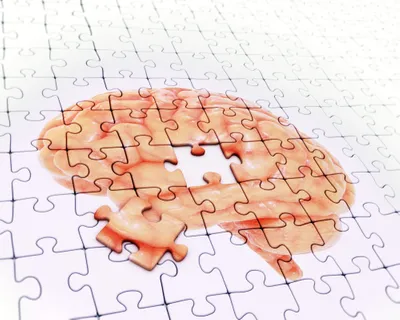Aphasia typically refers to difficulty communicating, whether it’s comprehending what someone is saying, or speaking without making sense to the recipient. It’s commonly associated with a stroke, as some patients experience the problem after a medical episode.
However, stroke isn’t the only cause of aphasia – it could also point to a developing brain tumor, according to The Mayo Clinic. Trauma to the head could also be the culprit. Other times, aphasia can be temporary and associated with a migraine headache or seizure, adds the source. Let’s look at seven symptoms of aphasia…
1. Leaving Out Words
There is more than one classification of aphasia, one of them being Broca aphasia, also known as nonfluent aphasia, according to the Mayo Clinic. In this form of the condition, there’s “damage to the language network near the left frontal area of the brain,” explains the source.
The result is that the patient will have trouble getting words out or speak in short sentences and sometimes omit key words. However, the clinic notes that usually the recipient can still tell what is being said or asked. Those with this type of aphasia can usually comprehend better than they can communicate, which is a source of frustration, it adds.
2. Adding Words
Another form of aphasia – known as Wernicke’s Aphasia or fluent aphasia – means the patient can talk for long periods of time, but not realizing they’re not much sense. “They may fail to realize that they are using the wrong words or using a non-existent word and often they are not fully aware that what they say doesn’t make sense,” explains Aphasia.org.
With this type of aphasia, the brain is damaged in the left posterior temporal regions of the brain also known as the Wernicke’s area, “hence the name of the aphasia,” explains the source. Carl Wernicke is a German neurologist that first related this speech deficit to that region of the brain, it adds.
3. Difficulty Reading and Writing
Not only does aphasia affect verbal communication and comprehension, it also impacts the ability of the patient to read and write coherently, notes the American Speech-Language-Hearing Association (ASHA).
This can be as simple as not understanding a simple brochure or pamphlet, as well as not properly putting words together to form sentences, it adds. You can imagine then the impact it would have to someone who usually loves to read novels.
4. Taking Jokes Literally
The same source (ASHA) also notes that your brain’s ability to differentiate between literal and figurative speech can become impaired when you’re suffering from aphasia. An example used by the source is a patient thinking it’s actually “raining cats and dogs” when someone uses that term.
This can be a problem is a patient can’t detect sarcasm, and may take offense to something where there was none intended. It can also lead them to follow instructions or directions incorrectly. This is a specific symptom of Wernicke’s Aphasia, according to other sources.
5. Using the Wrong Words
According to the Ontario Association of Speech-Language Pathologists and Audiologists (OSLA), a patient with aphasia might be thinking the right word, but the entirely wrong word comes out of their mouth when they attempt to vocalize it.
For example, the source says you might be thinking of a window, but use the word “foot” instead. Aside from using the wrong word, someone with aphasia might completely fabricate new words, such as “kerchump” in place of “supper,” adds the OSLA.
6. Gradual Impairment
Aphasia.org explains Primary Progressive Aphasia or PPA is when aphasia slowly creeps in (unlike how it appears suddenly following a stroke). This type of aphasia is sometimes related to Alzheimer’s Disease, it adds.
However, the source also points out that it’s not the same thing as Alzheimer’s – “Most people with PPA maintain ability to take care of themselves, pursue hobbies, and, in some instances, remain employed,” it explains. Almost all PPA patients will eventually lose their ability to speak, so it’s helpful to some to carry identification just in case.
7. Difficulty Conversing One-on-One
TactusTherapy.com notes that when it comes to communicating with someone who has aphasia, “sometimes more is better”. It notes that talking in small groups (of three) can be comforting for a patient, as it doesn’t put them in the “hot seat” and require them to speak – they can just listen.
In the same line of thought, going too big can be a problem, it adds. “Most people with aphasia avoid large crowds as the fast pace of a group conversation can be overwhelming,” explains the source. It can be hard for the person to zero in on a particular speaker in a larger crowd, points out some other sources.










